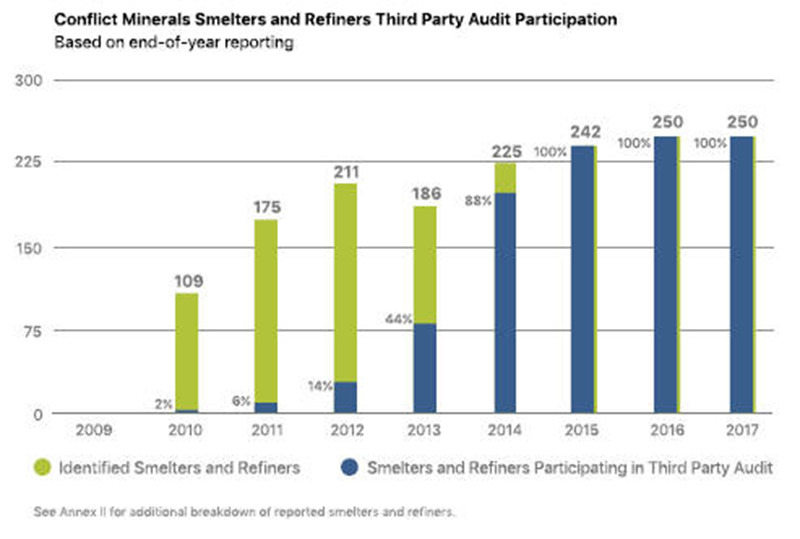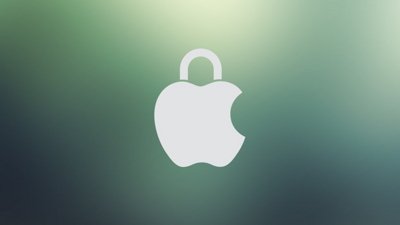Apple issued its annual Conflict Minerals Report for the 2017 calendar year to the U.S. Securities and Exchange Commission on Tuesday, noting the removal of 10 smelters and refiners that failed to participate with third-party audits in a timely manner, while another 6 were axed by partner suppliers.
According to the specialized disclosure, 100 percent of identified smelters and refiners in Apple's supply chain participated in independent third-party conflict mineral audits for the third straight year.
Apple's conflict minerals program, part of the company's human rights initiative, is designed to conform with the Organisation for Economic Co-operation and Development's Due Diligence Guidance for Responsible Supply Chains of Minerals from Conflict-Affected and High-Risk Areas, a standard most recently modified in 2016.
Currently, the program covers sources of gold, columbite-tantalite (coltan), cassiterite, wolframite, tantalum, tin and tungsten. A total of 250 mineral suppliers were identified for the year ending on Dec. 31, 2017.
While Apple touts the 100 percent participation statistic, it says more must be done to "help end abuses caused by conflict and to protect human rights." To achieve that lofty goal, the company continued to work with a number of international bodies dedicated to responsible mineral mining operations.
In addition, Apple benchmarked the scope and requirements of third-party sustainability standards, analyzed which guidelines met responsible sourcing requirements and made that information public. Apple believes the effort has already seen success, saying its work has been used as a basis for new child and forced labor requirements added to the Mining Association of Canada's sustainability standards.
Aside from broad standards, Apple is taking steps to protect the people in its supply chain, the company says. Specifically, the program seeks to improve conditions in the Democratic Republic of the Congo ("DRC") and adjoining countries, an area infamous for widespread use of child laborers.
Apple is also expanding risk assessment initiatives through its Risk Readiness Assessment survey. The company demands suppliers interact with mineral sources to complete the RRA, and this year 80 percent of identified smelters and refiners provided responses.
Additional steps taken in 2017 include participation in whistleblowing programs, reviewing and acting on incident reports, analyzing public allegations, publishing regular progress reports and promoting transparency.
As the world's largest tech company, Apple boasts a vast network of suppliers that spans the globe. On its own accord, and at times with pressure from NGOs and activist groups, the company has sought to rid its supply chain of bad actors, down to the material source level.
Apple's efforts have for the most part been successful, though claims of unethical sourcing continue to crop up from time to time. Most recently, a report from Amnesty International and DPR non-profit Afrewatch in January said child labor is being used to mine cobalt that makes its way into the supply chains of high-tech companies including Apple.
 Mikey Campbell
Mikey Campbell














 William Gallagher
William Gallagher

 Christine McKee
Christine McKee
 AppleInsider Staff
AppleInsider Staff
 Chip Loder
Chip Loder

 Malcolm Owen
Malcolm Owen









9 Comments
I can almost guarantee Apple doesn't have perfect control over who does what and is using whom in these supply chains. Chinese suppliers and factories are a shell game. A company says they are doing something, but they'll job it out to another cheaper factory but still provide you with paperwork that assures you they are in compliance. It's a huge scam over there. And with China's expansion into African nations, the same practices go with them.
No mention of Cobalt, the mining of which is rampant with child labour.